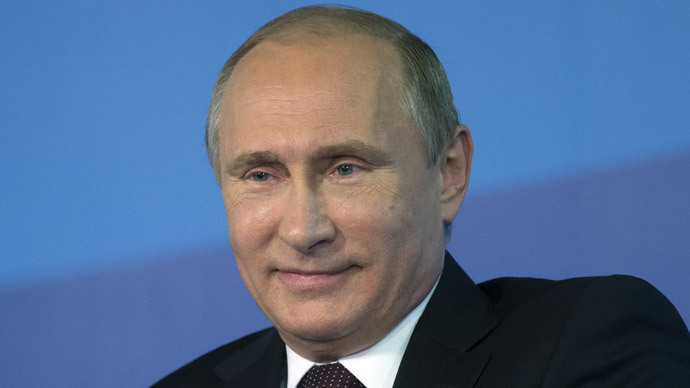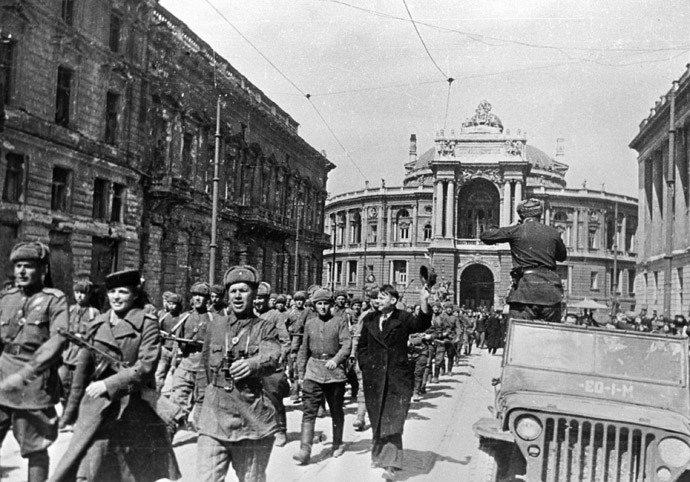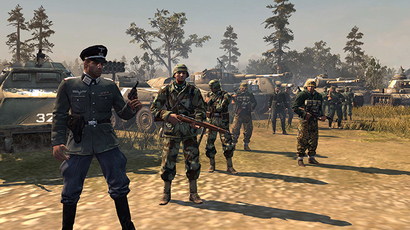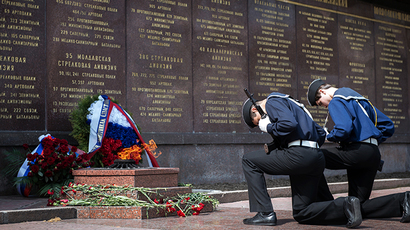Russian leader congratulates Ukrainian WWII veterans, urges common fight against neo-Nazism

President Putin has sent greetings to veterans to mark the 70th anniversary of Ukraine’s liberation from Nazi occupation.
In his letter Vladimir Putin said the most important task is countering any attempts to revive fascist ideology and to rewrite the common history of Russia and Ukraine.
He wished Ukrainian war veterans good health, prosperity and good spirits and also wished peace and prosperity to all the Ukrainian people.
“In the years of the Great Patriotic War in the hard and bloody battle for Ukraine people could witness the spiritual power and unity of our multi-ethnic people in all their glory. They witnessed the courage and steadfastness of our warriors-liberators, of partisans and workers of the home front,” the Russian leader wrote in his message.“

Our fathers and grandfathers together in one line they fought for freedom and independence of their motherland with courage and selflessness destroyed the enemy and brought nearer the long-awaited victory.We must carefully preserve the wonderful traditions of brotherly friendship and mutual help,” Putin wrote.
“It is extremely important to raise the younger generation on high patriotic values and actively resist any attempts to revive the Nazi ideology, to instigate ethnic hatred and falsify our common history,” the message reads.

Ukraine celebrates the day of liberation from Nazi invaders on October 28 – the holiday was instituted in 2009 by President Viktor Yushchenko. However, on October 22 this year the Ukrainian State Committee for Television and Radio broadcasting officially asked the country’s reporters to stop using the phrase “liberation from Nazi invaders” and change it to “driving Nazi occupants from Ukrainian territory” instead.
In April this year the Russian State Duma approved a bill that provides up to five years in prison for denying the facts set out in the Nuremberg Trial, the rehabilitation of Nazism, and distributing false information about the actions of Russia and its allies during WWII. When the bill was still in the discussion phase its sponsors told the press that the push for such a law is especially evident today in times of the violent political crisis in Ukraine, launched and supported by radicals and neo-Nazis.














